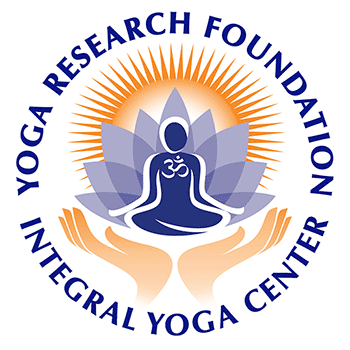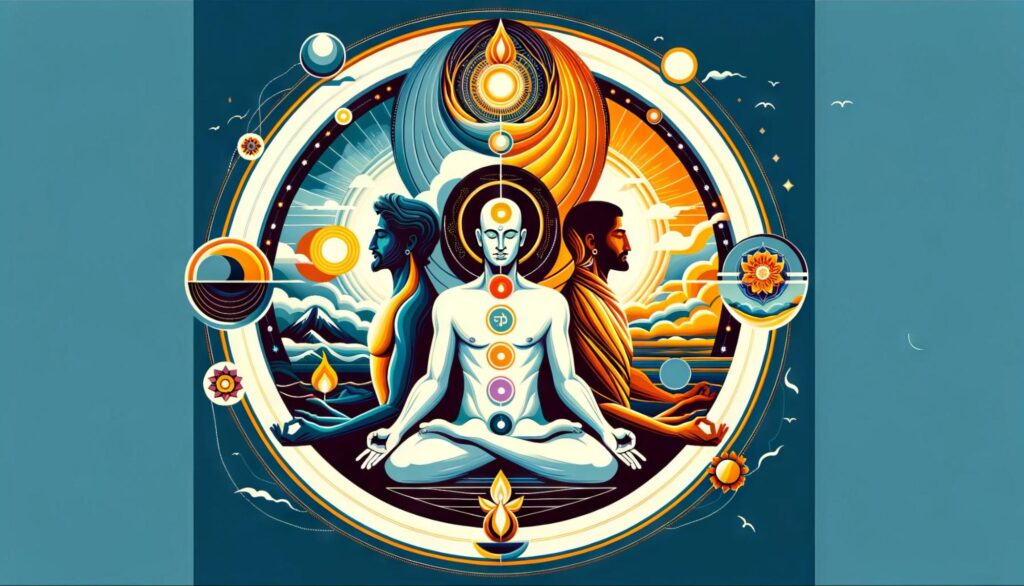Ever caught yourself dreaming of a life where every wish is ticked off, leaving you in a state of pure bliss, untouched by the chaos of negative thoughts? It’s a scenario where the constantly shifting self-image, from being a victor one moment to a victim the next, finds its true essence. Imagine realizing that the hurdles you once thought insurmountable are now within your power to overcome. This revelation isn’t just wishful thinking; it’s the gateway to exploring the infinite possibilities within yourself, a journey made possible through Yoga.
Beyond the Mat: The True Meaning of Yoga
In the West, Yoga is often synonymous with flexibility, strength, and the pursuit of a toned body. Yet, some look towards Yoga for the miraculous, hoping to unlock psychic powers or achieve extraordinary feats. However, the essence of Yoga dives much deeper than physical prowess or mystical achievements. Yoga, a Sanskrit word meaning ‘union,’ is about merging your individual consciousness with the universal. It’s an acknowledgment that you’re not just a drop in the ocean but the ocean in a drop. Every spiritual path, at its core, celebrates this union – the realization that we are all manifestations of the same divine energy.
A Journey Through Time: The Origins of Yoga
Attempting to pinpoint the inception of Yoga is like trying to capture the wind. Its roots are ancient, stretching back to a time before recorded history, embedded in the spiritual traditions of the Vedic sages. The significance of Yoga doesn’t lie in its age but in its timeless application—a guide to self-mastery and enlightenment. The spiritual laws Yoga unveils, much like Newton’s discovery of gravity, have always existed; it took a sage to reveal them to the world. From the serene teachings of Jesus to the profound insights of the Upanishads, Yoga has echoed through ages, a universal language of spiritual unity.
The Integral Path: Embracing the Full Spectrum of Yoga
Yoga isn’t a one-size-fits-all; it’s a mosaic of paths leading to the same destination – self-realization. Integral Yoga harmonizes the four primary paths: Jnana (Wisdom), Bhakti (Devotion), Karma (Action), and Raja (Meditation), each catering to different facets of our being. This holistic approach ensures a balanced evolution, nurturing the mind, heart, will, and body in unison. Whether it’s through the discerning path of Jnana, the loving surrender of Bhakti, the disciplined focus of Raja, or the selfless service of Karma, Integral Yoga offers a comprehensive blueprint for spiritual awakening.
Living Yoga: Beyond the Practice
One might wonder, “How can I pursue Yoga with a life full of desires and distractions?” Yoga doesn’t ask you to renounce the world but to live in it with awareness, making every action a step towards enlightenment. It’s about cultivating a mindset where, amidst the hustle, you find peace; amidst chaos, clarity. This practice doesn’t isolate you from the world but deepens your connection to it, teaching you to live fully, with purpose and joy.
Jnana Yoga: The Path of Wisdom
Jnana Yoga, often described as the Yoga of knowledge or wisdom, invites us into a profound inquiry into the nature of existence. It’s a journey that starts with intellectual curiosity but soon transcends it, leading to the direct experience of our true Self beyond the mind’s conceptual understanding. Through practices like meditation, contemplation, and the discerning study of sacred texts, Jnana Yoga challenges us to question our deeply held beliefs and perceptions. It teaches us to differentiate between the temporary, ever-changing aspects of our experience and the eternal, unchanging reality of our innermost being. This path is not for the faint-hearted, as it requires a relentless pursuit of truth, but it promises the ultimate liberation—freedom from the illusion of separateness and the realization of oneness with the entire universe.
Bhakti Yoga: The Yoga of Devotion
In contrast to the introspective path of Jnana Yoga, Bhakti Yoga is an outward expression of love and devotion towards the divine. It’s a path that sees the entire creation as a manifestation of the divine and our relationship with it as an eternal dance of love. Bhakti Yoga is about cultivating a heart full of gratitude, compassion, and unconditional love. Through practices like chanting, prayer, and ritual, Bhakti Yoga softens the heart and dissolves the ego, allowing practitioners to experience the divine presence in every moment and in every being. This path teaches that love is the most powerful force in the universe, capable of transforming not just individuals but the whole world.
Raja Yoga: The Science of Mind and Meditation
Raja Yoga, often called the “royal path,” is a comprehensive system of Yoga that includes the physical practices most familiar in the West but is primarily focused on mastering the mind. It’s based on the Yoga Sutras of Patanjali, which outline an eight-limbed path (Ashtanga) leading to Samadhi, or enlightenment. The practices of Raja Yoga include ethical disciplines, physical postures, breath control, sensory withdrawal, concentration, meditation, and finally, samadhi. This path emphasizes the importance of meditation as the ultimate tool for understanding the nature of the mind and achieving control over its incessant fluctuations. Through the disciplined practice of Raja Yoga, one can reach a state of inner peace and clarity, where the true self is revealed in its purest form.
Shaping Your Destiny with Karma Yoga
In the intricate weave of life, nothing occurs by mere chance. Yoga unveils a profound truth: our present existence is the culmination of our past thoughts and actions, empowering us to shape our future with deliberate intention. Karma Yoga, the path of selfless action, teaches us that every deed, every thought, is akin to a brushstroke on the vast canvas of our destiny. Engaging in the world not as a battleground but as a field for spiritual practice, we discover that life’s challenges and joys are not barriers but bridges to growth, guiding us ever closer to our true essence.
Karma Yoga transforms mundane activities into a spiritual practice by infusing them with a sense of purpose and detachment from the fruits of our actions. This approach doesn’t just change how we act; it transforms how we see the world and our place within it. By performing our duties with mindfulness and selflessness, we begin to dissolve the ego, aligning ourselves with a higher purpose. This alignment brings about a deep sense of fulfillment that transcends the temporary pleasures and pains of life, leading us toward true self-realization.
As we delve deeper into the essence of Yoga, we come to realize it’s not merely an exercise for physical well-being but a profound spiritual discipline. It’s a journey inward, revealing that the peace, joy, and contentment we seek in the external world have always resided within us. Yoga beckons us to awaken to our true nature, inviting us on an illuminating journey back to ourselves, where we discover our interconnectedness with all existence. Through the practice of Karma Yoga, we learn that every moment is an opportunity to move closer to this realization, shaping our destiny with each thoughtful action.
Integrating the Paths of Yoga
While each path of Yoga offers a distinct approach to spiritual growth, they are not mutually exclusive. In fact, most practitioners find that their journey naturally incorporates elements from each path. Karma Yoga enriches our actions with selflessness and purpose; Jnana Yoga illuminates our intellect with the light of true knowledge; Bhakti Yoga fills our hearts with divine love and devotion; and Raja Yoga steadies our mind with the power of concentration and meditation.
The beauty of Yoga lies in its flexibility and inclusiveness. It invites us to explore and integrate these paths in a way that resonates with our personal inclinations and spiritual aspirations. As we walk the path of Yoga, we learn that the ultimate goal of all these practices is the same—to lead us back to our true nature, which is boundless peace, joy, and love.
Conclusion
Each path of Integral Yoga offers a unique approach to understanding and experiencing the ultimate reality. They collectively form a comprehensive system that not only enhances personal development but also contributes to a harmonious and enlightened society.
In the next blog post, we will delve into Karma Yoga in detail, exploring its profound impact on personal growth and societal contribution.
For those seeking a deeper understanding of Integral Yoga, “The Integral Yoga – The Secret to Enlightenment” by Swami Jyotirmayananda offers an insightful introduction. Authored by the last living disciple of Swami Sivananda, this course encapsulates the essence of Integral Yoga, blending various yoga and spiritual practices into a cohesive way of life and thought. For more information, please contact info@yogaresearchfoundation.org.

